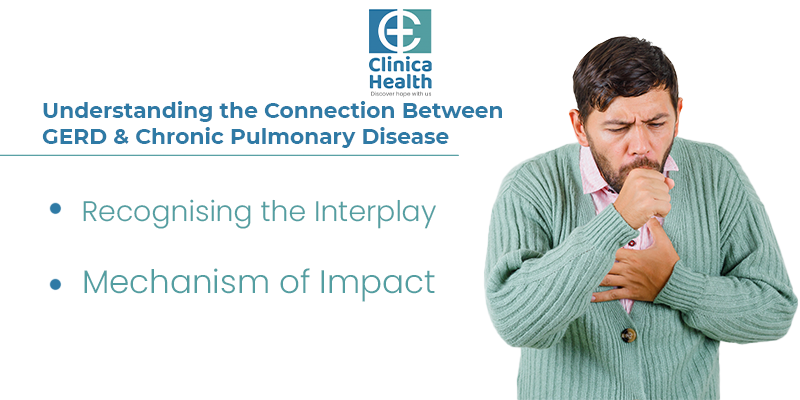-
 Call Now:
8010 552 552
7595 838 844
Call Now:
8010 552 552
7595 838 844
-
 Email Me:
[email protected]
Email Me:
[email protected]
Chronic Pulmonary Disease (COPD) brings its own set of challenges, and when coupled with Gastroesophageal Reflux Disease (GERD), the impact can be particularly daunting. For those managing COPD, the occurrence of flare-ups can be exacerbated by GERD. In this blog, we delve into effective strategies to cope with the effects of COPD flare-ups in the context of GERD, exploring the role of GERD treatment surgery in alleviating symptoms.

COPD and GERD often coexist, with one condition influencing the other.
Flare-ups in COPD can trigger or worsen GERD symptoms, creating a challenging cycle for individuals.
Chronic coughing and increased abdominal pressure during COPD exacerbations can contribute to the reflux of stomach contents into the oesophagus. In addition, aspiration of gastric contents into the lungs can exacerbate respiratory symptoms and trigger COPD flare-ups.
Here are the following strategies as guided by an expert medical professional in GERD, Dr. Purnendu Bhowmik.
Adopt an anti-reflux diet, emphasising low-acid foods and avoiding triggers like caffeine and spicy foods. Thus, it is important to practise mindful eating with smaller, more frequent meals to minimise pressure on the stomach.
Studies show that adjusting the sleeping position by elevating the head of the bed reduces the likelihood of acid reflux during the night. Using a wedge pillow can provide a comfortable and effective solution.
Consistent adherence to COPD management plans, including prescribed inhalers and medications, is essential. Also, medical professional may engage in pulmonary rehabilitation programs to strengthen respiratory muscles and improve overall lung function.
GERD treatment surgery, such as fundoplication, is a surgical option that involves wrapping the top of the stomach around the lower oesophagus to prevent acid reflux. This procedure can benefit individuals with persistent GERD symptoms despite lifestyle modifications and medications.
Laparoscopic fundoplication is a minimally invasive surgical technique that reduces recovery time and discomfort compared to traditional open surgery. It involves small incisions and the use of a camera to guide the surgeon during the procedure, making it ideal for fast recovery and less pain involved in the procedure.
Individuals experiencing persistent GERD symptoms should consult with healthcare providers to explore the possibility of GERD treatment surgery. Thus, a thorough evaluation, including discussions about medical history and the severity of symptoms, will help determine the most appropriate course of action.
In the complex landscape of managing COPD and GERD, finding effective strategies for coping with flare-ups is essential for maintaining a good quality of life. Lifestyle modifications, pharmacological management, and, in some cases, GERD treatment surgery can contribute to a comprehensive approach to alleviating symptoms.
As individuals navigate the challenges of COPD and GERD, seeking personalised advice from healthcare providers is crucial. The evolving field of GERD treatment surgery offers hope for those seeking long-term relief from GERD symptoms. By understanding the interplay between these conditions and adopting a multidimensional approach to management, individuals can take proactive steps toward a more comfortable and fulfilling life.